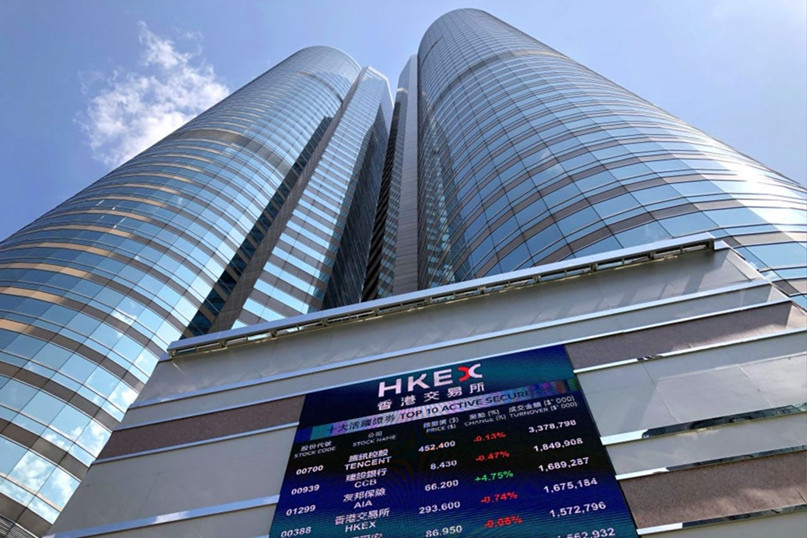
Stock Asia shows mainly a decline to 1.6%. The Chinese Shanghai Composite and Shenzhen Composite indices declined by 0.35% and 0.25%, respectively, while the Japanese Nikkei 225 fell slightly more – by 0.63%. Hong Kong's Hang Seng Index dropped the most – by 1.52%. Only two indices show growth: the Australian S &P / ASX 200 rose 0.6%, and the Korean KOSPI – 1.01%.
In China, there is an increase in the consumer price indicator, which is the leading indicator of inflation (by 2.1% year-on-year last month after the September rise of 2.8%). At the same time, the monthly increase in prices was only 0.1%. This is the minimum rate of inflation growth over the past six months. Such dynamics of this indicator may indicate the onset of deflation in the country. The price decline was recorded for the first time in the last two years.
In the first half of the year, such data were perceived as a softening of economic growth in general. However, experts are inclined to believe that this situation signals a noticeable decrease in domestic demand caused by the policy of "zero tolerance" for the coronavirus. In case of further weakening domestic and export demand, the Chinese authorities will have to fight deflation rather than inflation. The effect of deflation is approximately equal to the effect of high inflation – a decrease in industrial production and a decline in economic growth.
Among the components of the Hang Seng Index, the largest drop in value was noted by the securities of Wuxi Biologics (Cayman), Inc., which fell by 5.9%, BYD Co., Ltd., which decreased by 5.8%, Geely Automobile Holdings, Ltd., which lost 4.4%, as well as Tencent Holdings, Ltd., which fell by 3.6%. Alibaba Group's quotes dropped slightly less – by 1.3%.
The rise of the South Korean indicator was facilitated by the share price of the largest companies: Samsung Electronics shares rose by 0.5%, and Hyundai Motor – by 0.3%.
Thanks to the increase in the prices of BHP shares (by 2.1%) and Rio Tinto (by 2.4%), the Australian S&P/ASX 200 also showed an increase.
Among the components of the Japanese Nikkei 225, Nintendo, Co. Ltd. marked the largest drop in quotes, with shares falling by 7.5%. This was due to a deterioration in the annual sales forecast of the new console due to disruptions in the supply of semiconductors. Even the increase in net profit for the first six months of the current fiscal year by 34% could not improve the situation.
Also, the fall in value was shown by Mitsubishi Motors, Corp. securities, which fell by 5%, as well as Honda Motor, Co. Ltd. and Nissan Motor, Co. Ltd., which lost 0.9% each.
 English
English 
 Русский
Русский Bahasa Indonesia
Bahasa Indonesia Bahasa Malay
Bahasa Malay ไทย
ไทย Español
Español Deutsch
Deutsch Български
Български Français
Français Tiếng Việt
Tiếng Việt 中文
中文 বাংলা
বাংলা हिन्दी
हिन्दी Čeština
Čeština Українська
Українська Română
Română

